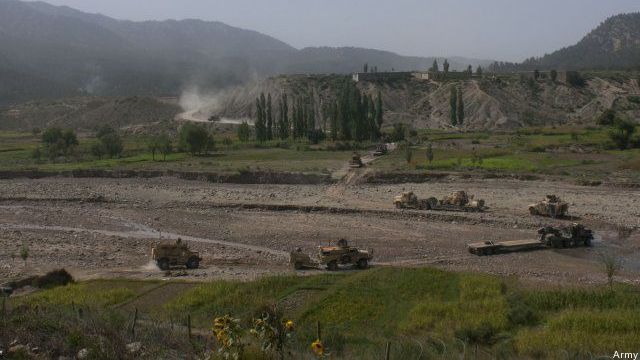Panetta To Meet Northern Route Leaders As Pakistani Roads Remain Uncertain
Posted on

CHICAGO: With Pakistan continuing to send mixed signals about whether and when it would reopen supply routes to NATO, US Defense Secretary Leon Panetta plans to meet tomorrow with representatives of five countries who make the so-called Northern Routes into and out of Afghanistan possible.
The U.S. recently won permission from the Northern Route countries to send non-lethal gear as well as wheeled armored vehicles to enter and leave Afghanistan. However, weapons must still be flown and that would include heavy weapons such as tanks. But the Pakistani routes carried about two-thirds of NATO equipment, clearly demonstrating their shorter distance.
“We will certainly use the northern routes for the removal of equipment from Afghanistan over time. It’s too early to determine the precise nature of equipment that may be exfiltrated through the north,” the senior defense official said.
As the U.S. plans to withdraw 23,000 troops by October — and many more after that since most troops but Special Operations are due to be gone by 2014 — the question of how to move the enormous amounts of equipment they depend on grows increasingly important.
Right now, the northern routes pose several formidable obstacles. They are long and transit a host of countries and a variety of transport systems — roads, rails and ships — depending on which route you’re taking. Each country’s customs and security officials, of course, add to the possibility of delays and corruption.
High-level negotiations are under way, I understand, to get approval for NATO to move lethal equipment through the land routes but officials will not discuss them. Russia allows the overflight of lethal equipment but will not allow the equipment to travel on its roads or rails.
I conducted a series of interviews several weeks ago with experts on Pakistan and on logistics about this issue. One of those experts, who helped plan our withdrawal from Iraq and is now working with the State Department in Afghanistan, believes “the Russians are going to get a lot of leverage out of it.”
Ray Schaible, vice president of operational logistics at the respected not-for-profit LMI (formerly the Logistics Management Institute) says that the withdrawal from Afghanistan may help reshape the Silk Road, which the transit routes travel for much of their length. “Even after the war ends this has potential implications for Russia and the old Silk Road,” he said.
But in the meantime many obstacles loom beyond the complications of moving trucks from one rail system to another or transiting remote border areas. All vehicles must undergo agricultural inspection, Schaible notes. “That’s a key issue,” he said. During the withdrawal from Iraq we used modern facilities in Iraq that made the task relatively painless and speedy. Those facilities do not exist in the countries we will transit.
Schaible said “negotiations going on right now to get third countries to accept equipment not cleaned and washed,” but that may take considerable time and diplomatic finesse. In the meantime, we thank the Russians and their neighbors and press on.
Subscribe to our newsletter
Promotions, new products and sales. Directly to your inbox.
